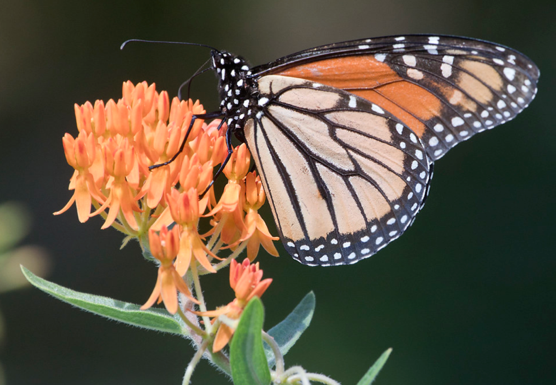Support Monarch Butterflies & Pretty Pollinators SG Class
go.ncsu.edu/readext?697099
en Español / em Português
El inglés es el idioma de control de esta página. En la medida en que haya algún conflicto entre la traducción al inglés y la traducción, el inglés prevalece.
Al hacer clic en el enlace de traducción se activa un servicio de traducción gratuito para convertir la página al español. Al igual que con cualquier traducción por Internet, la conversión no es sensible al contexto y puede que no traduzca el texto en su significado original. NC State Extension no garantiza la exactitud del texto traducido. Por favor, tenga en cuenta que algunas aplicaciones y/o servicios pueden no funcionar como se espera cuando se traducen.
Português
Inglês é o idioma de controle desta página. Na medida que haja algum conflito entre o texto original em Inglês e a tradução, o Inglês prevalece.
Ao clicar no link de tradução, um serviço gratuito de tradução será ativado para converter a página para o Português. Como em qualquer tradução pela internet, a conversão não é sensivel ao contexto e pode não ocorrer a tradução para o significado orginal. O serviço de Extensão da Carolina do Norte (NC State Extension) não garante a exatidão do texto traduzido. Por favor, observe que algumas funções ou serviços podem não funcionar como esperado após a tradução.
English
English is the controlling language of this page. To the extent there is any conflict between the English text and the translation, English controls.
Clicking on the translation link activates a free translation service to convert the page to Spanish. As with any Internet translation, the conversion is not context-sensitive and may not translate the text to its original meaning. NC State Extension does not guarantee the accuracy of the translated text. Please note that some applications and/or services may not function as expected when translated.
Collapse ▲Most everyone has heard about the plight of the beloved Monarch butterfly. Their numbers have drastically declined over the past several years. More and more folks are interested in helping these beautiful creatures.
Here are some ways that you can help:
- Add host plants, such as milkweed for emerging caterpillars – the plants WILL be munched on so don’t be alarmed when you see nibbled leaves!
- Favorite plants of adult butterflies include butterfly weed, butterfly bush, coneflower, aster, & marigold.
- They like flowers that have easy access points for nectar sipping such as phlox, gaillardia, & pentas.
- Herbs like fennel and parsley provide food for butterflies so add them to your garden.
- Butterflies prefer sunny areas, so plant a variety of sun-loving annuals, perennials, wildflowers, and shrubs including a wide range of flower colors.
Join N.C. Cooperative Extension of Union County and the Master Gardener℠ volunteers of Union County online on June 4, 2020, at 7 p.m. for the Successful Gardener program. Our speaker will be Master Gardener℠ Volunteer Annie Howell, and her topic will be Pretty Pollinators. She will discuss butterflies and moths and plants that you can add to your garden that serve as host plants for the caterpillars and nectar plants for the adults. To receive the link to join this meeting, email me at dddillio@ncsu.edu. You can sign up to receive notification of Extension Master Gardener Volunteer programs, events, and plant sales at Master Gardener℠ volunteers of Union County, just scroll down the page to subscribe.





